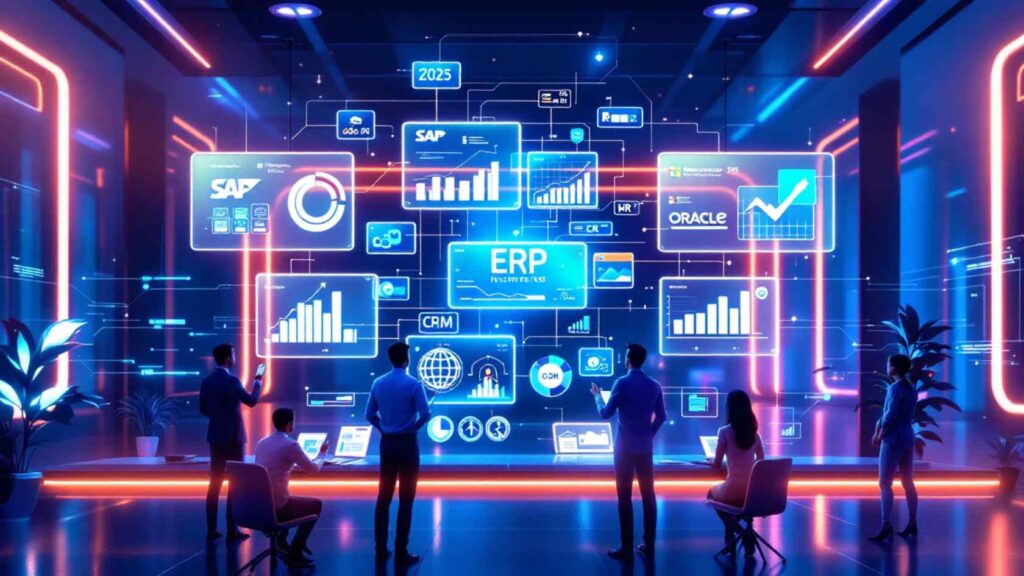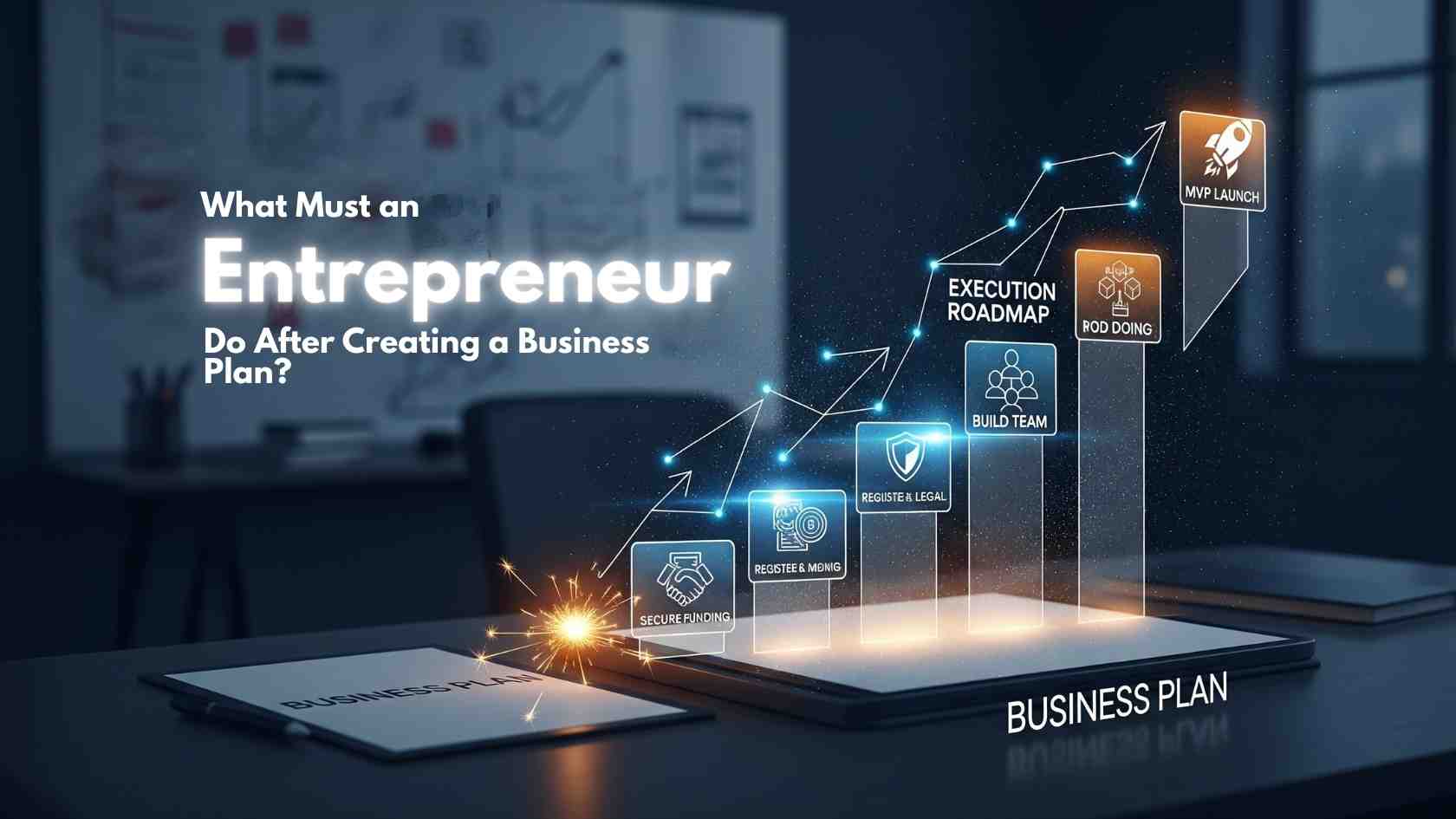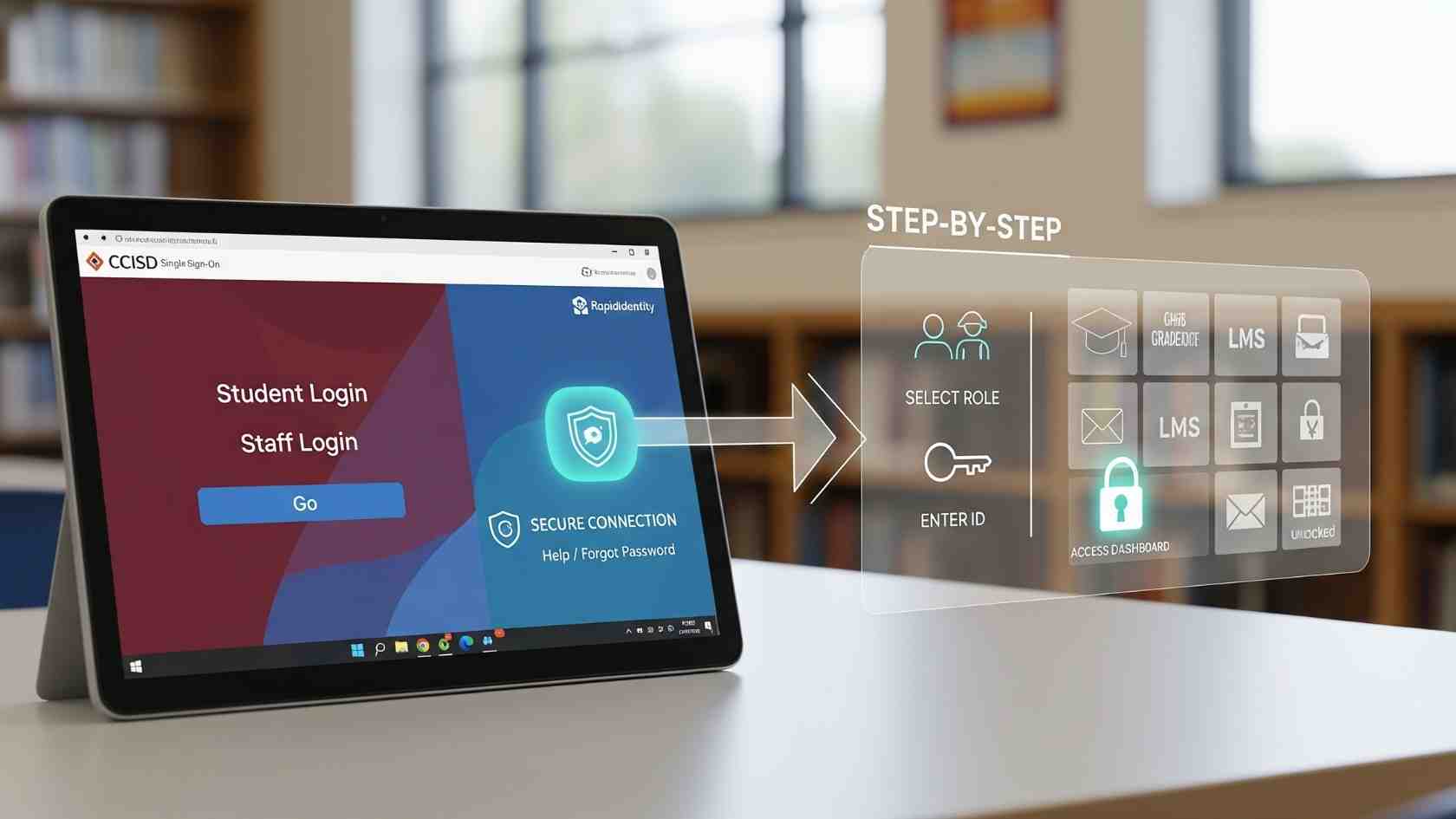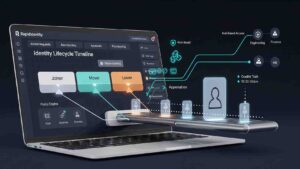Nowadays, “managing a business” involves balancing a lot of moving components, including finances, personnel, inventory, client relations & more. If there is no communication between your systems, it can feel overwhelming. Software for enterprise resource planning, or ERP, can help with that. Consider it your company’s central nervous system, connecting everything in real time so you are always aware of what is going on.
As 2025 approaches, ERP solutions have improved in intelligence, affordability, and usability. “Businesses of all sizes” can now access tools that were previously only available to the largest, thanks to the development of cloud computing & artificial intelligence. However, it can be difficult to “choose the best option” when there are so many _available.
This guide “deconstructs” the top ERP systems to consider in 2025.” By highlighting each system’s advantages, disadvantages & best fits, I hope to simplify the “decision-making process” & help you “select the best option for your firm.”
The Significance of ERP in 2025
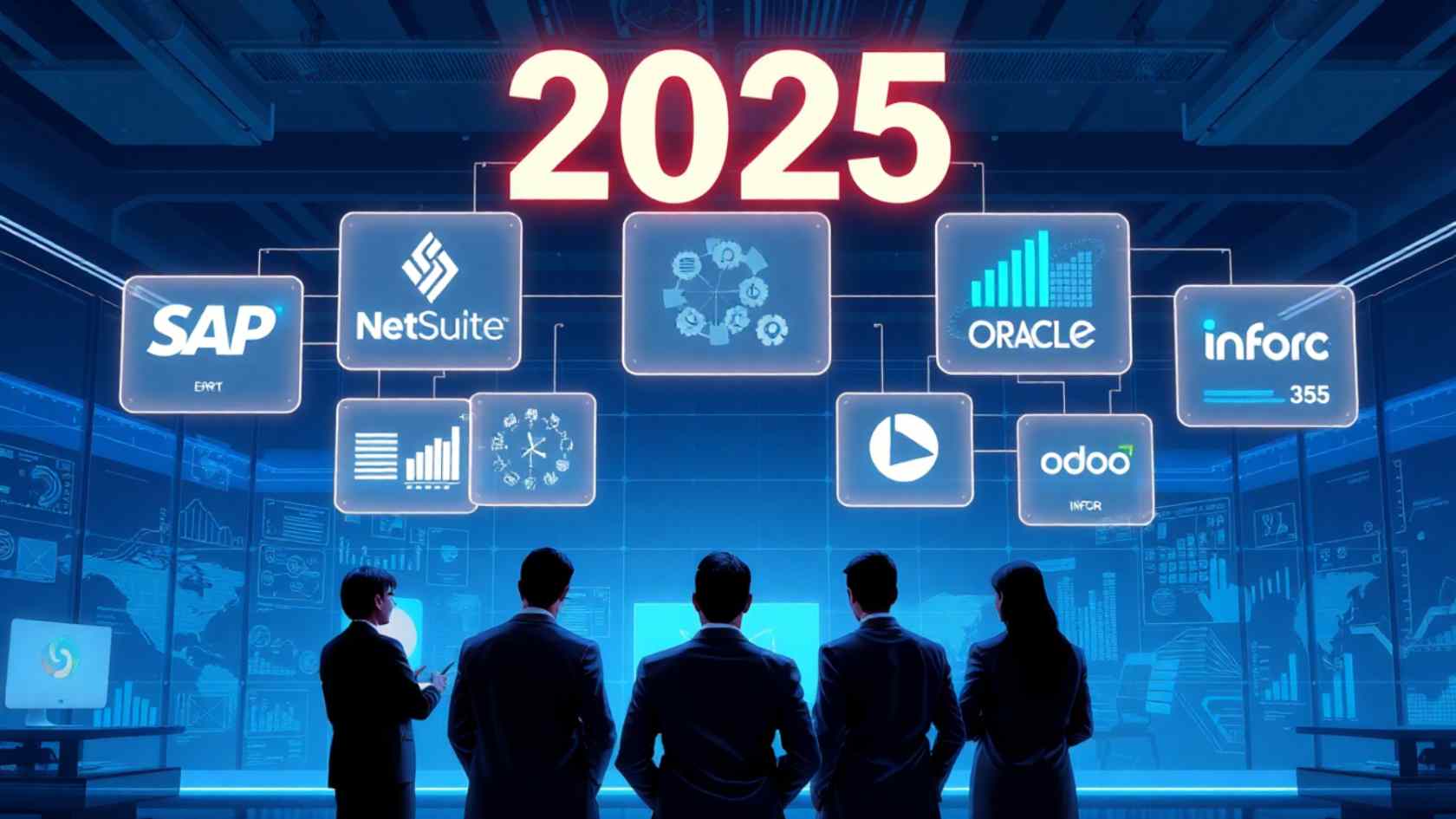
ERP isn’t just another software purchase. It’s the foundation of how your business runs. Here’s “why it’s still a game-changer”:
- One source of truth – no more chasing data across “multiple spreadsheets” & apps. There is only one system in which everything exists.
- Better choices – “Real-time dashboard” updates allow you to see issues (& opportunities) more quickly.
- Whether you’re a startup or a major player, ERP grows with you.
- Time savings – By automating repetitive tasks, your staff can concentrate on more “important work”.
- Peace of mind – Integrated reporting & “compliance tools” help you steer clear of expensive errors.
To put it briefly, “ERP” is what keeps your firm integrated & prepared for the future.
Top ERP Systems to Consider in 2025
Here are a few of this year’s most notable ERP platforms, along with clear explanations of their ideal users.
1. NetSuite by Oracle
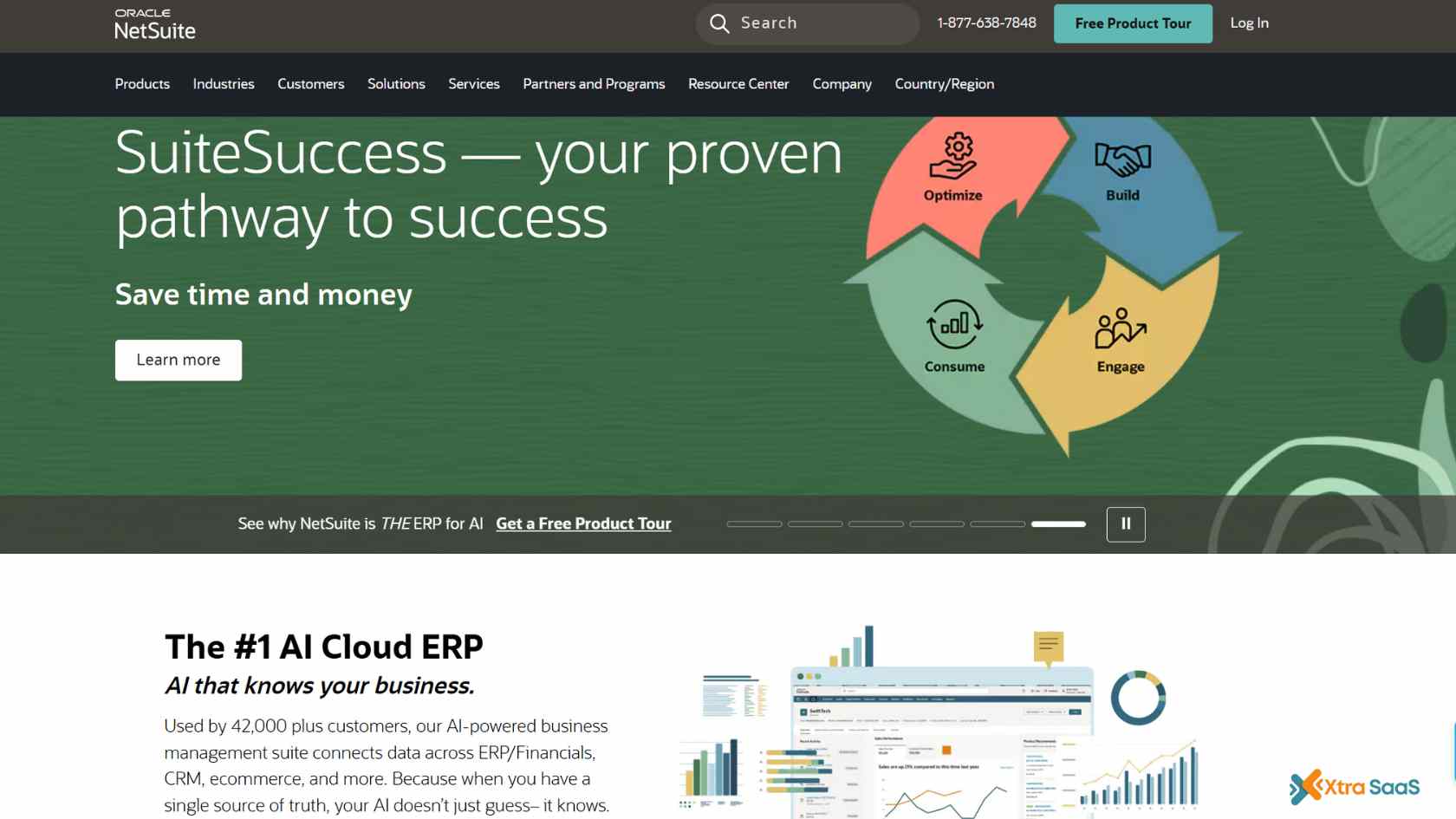
“NetSuite” is one of the most trusted cloud ERP systems for “growing companies”. It helps with finance, sales, inventory, & even online stores, making it a complete solution for small to mid-sized businesses. “In 2025”, it comes with over 200 AI tools to make tasks even faster.
Pros:
- Covers many business _areas in one system
- Fast to set up & run
- AI features for “smarter work”
Cons:
- Setup often needs _expert help
- “It can get expensive as you scale.”
2. Dynamics 365 by Microsoft
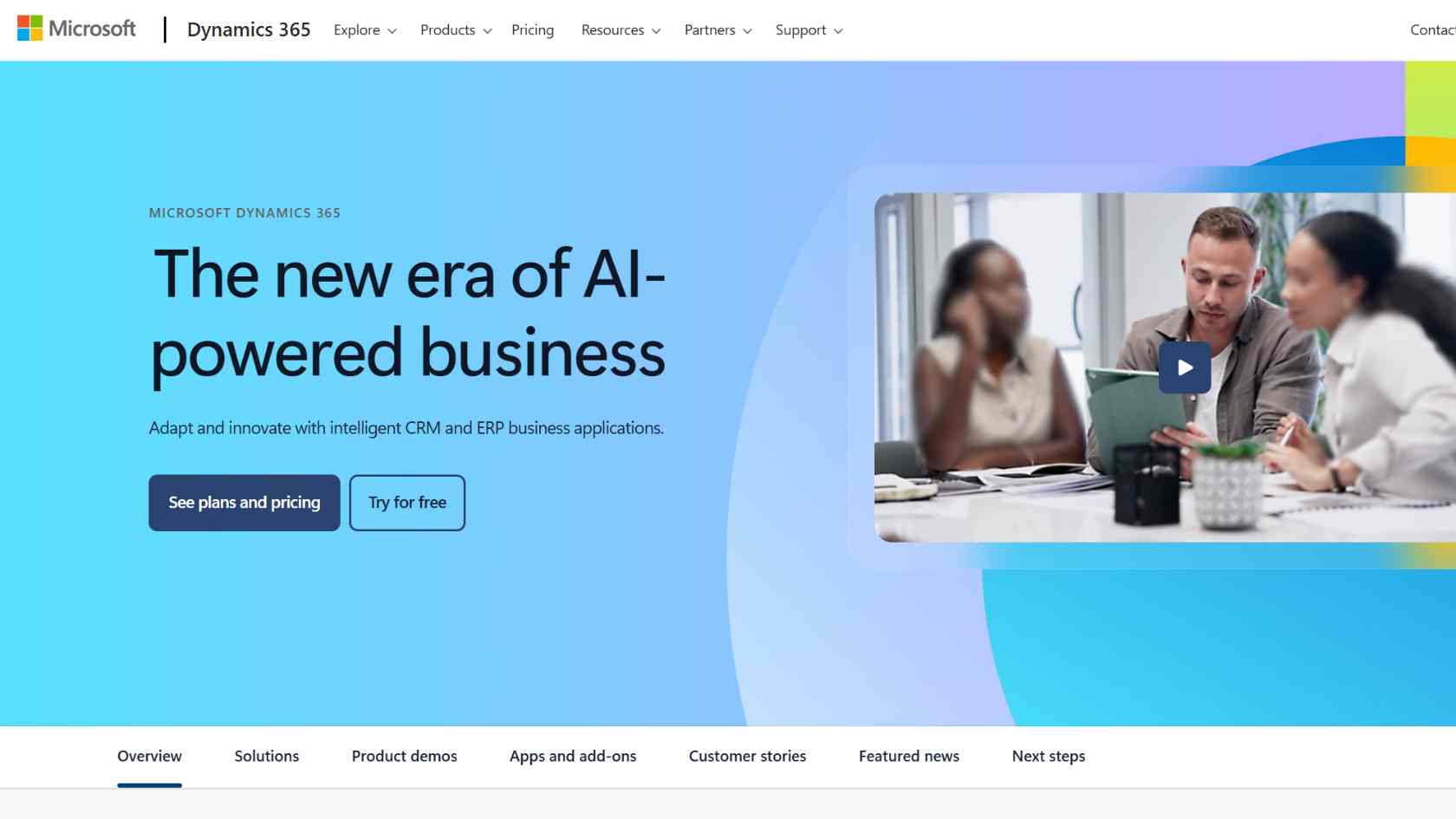
“Dynamics 365” is perfect if your business already uses “Microsoft apps” like Excel, Teams, or Outlook. It feels familiar to employees & works well for mid to large companies. The modular design means you only pay for the _parts you need.
Pros:
- Easy for “Microsoft users”
- Pay only for the needed _tools
- Good for “larger businesses”
Cons:
- Setup depends on the “partner’s skill”
- “Takes time to customize”
3. SAP S/4HANA Cloud
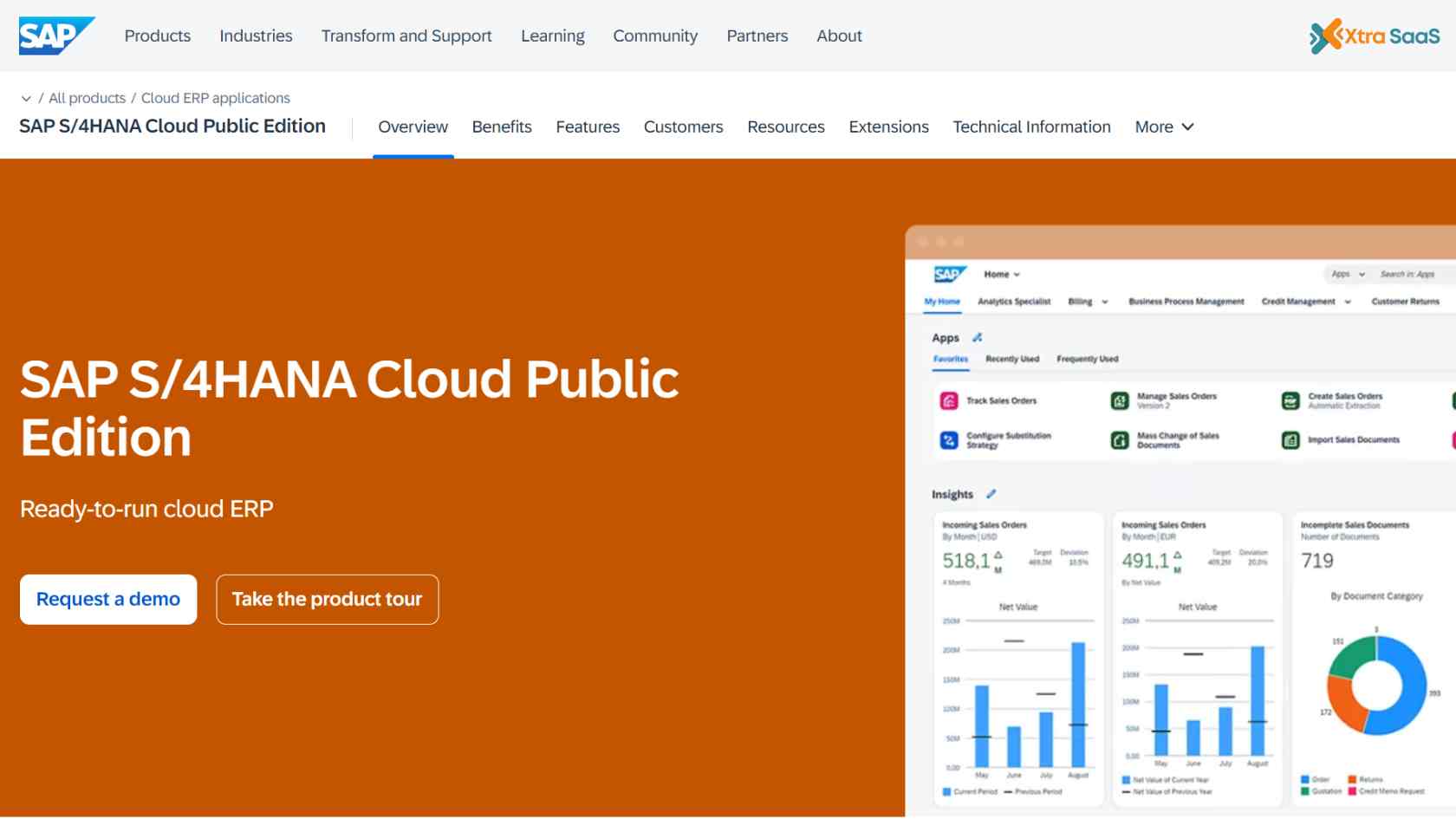
“SAP S/4HANA” is built for big, “global companies”. It’s strong in analytics, reporting & compliance. Businesses can use it in the cloud, on-site, or both, making it very flexible.
Pros:
- Powerful tools for “global operations”
- Flexible deployment _options
- Excellent for “large-scale reporting”
Cons:
- Very costly
- Too complex for “small businesses”
4. Acumatica Cloud ERP
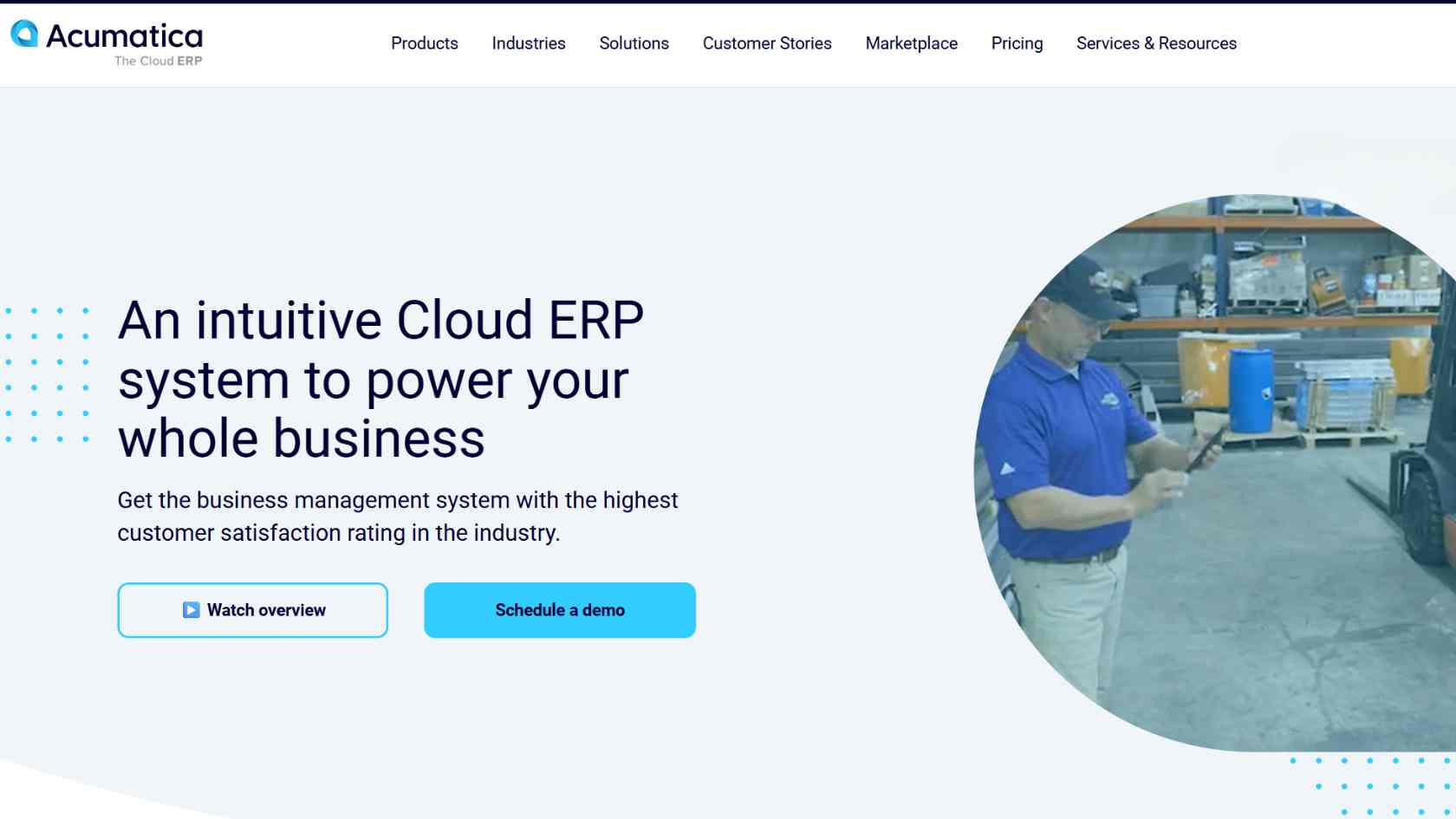
Acumatica is designed for small & mid-sized companies that are “growing fast”. It’s cloud-based & offers fair, usage-based pricing. Businesses like it because it’s customer-friendly & easy to integrate with other tools.
Pros:
- Affordable pay-as-you-go model
- Cloud-first & modern
- “Easy to integrate with other apps”
Cons:
- The partner network is “still smaller”
- Not as well-known as “bigger names”
5. Odoo
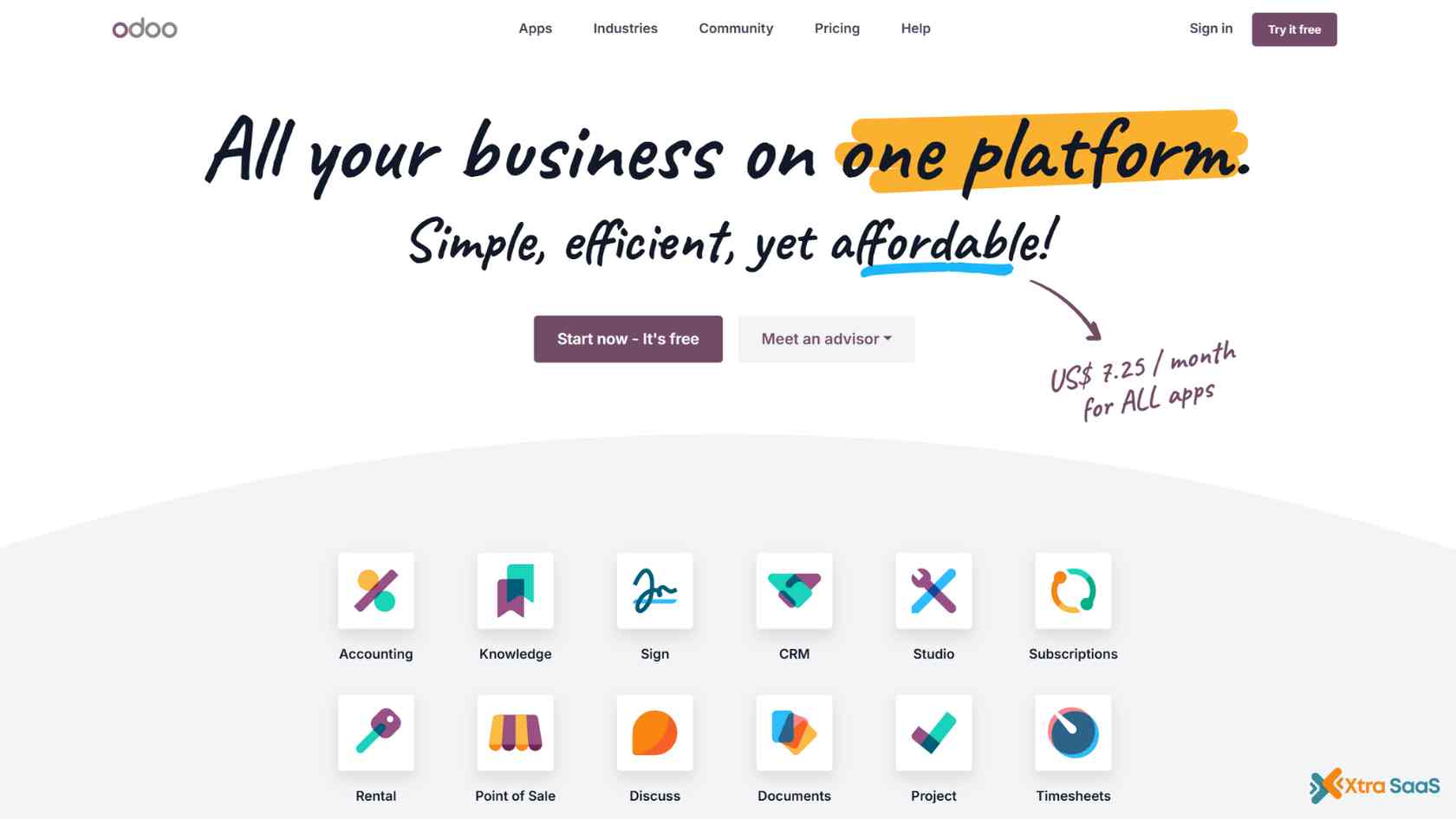
“Odoo” is an open-source ERP system, which means you can start small & expand as your business grows. It’s budget-friendly & works well for startups & small companies.
Pros:
- Very low _cost to start
- Modular & flexible
- Open-source “community support”
Cons:
- Can struggle with “complex needs”
- May need tech _skills to customize
6. IFS

“IFS” is great for industries that rely on heavy assets like construction, aerospace, & energy. It stands out for its scheduling & “field service features”. Deployment is flexible, whether in the cloud or on-site.
Pros:
- Excellent for “asset-heavy industries”
- Strong scheduling & workflow tools
- “Flexible deployment”
Cons:
- Not ideal outside of “niche industries”
- Can feel overbuilt for “general business”
7. Infor CloudSuite
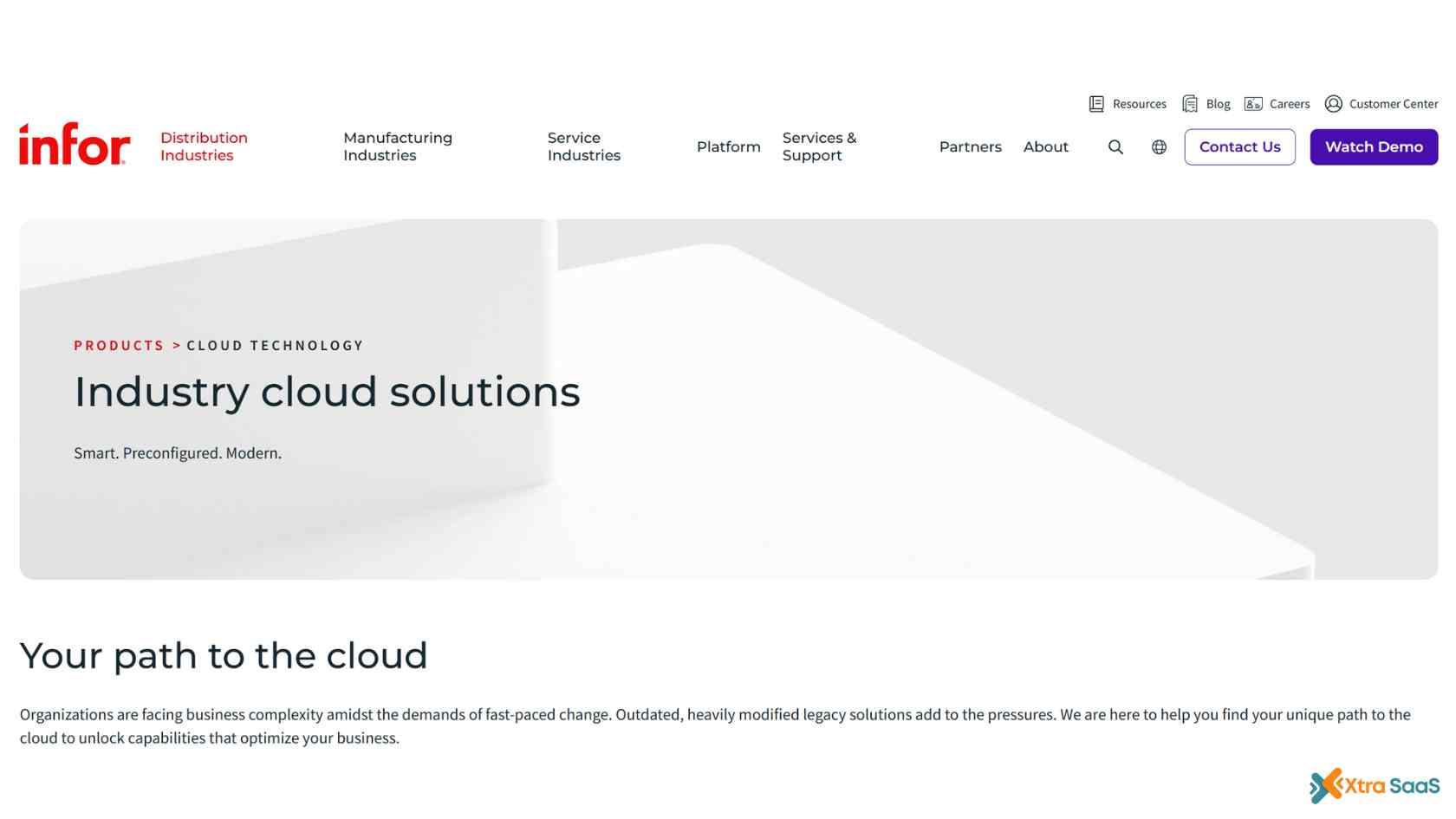
“Infor CloudSuite” is built for industries like healthcare, distribution, & manufacturing. It’s affordable compared to some other “ERP systems” & comes with strong pre-built industry features.
Pros:
- “Industry-specific tools”
- Cost-effective
- Good for manufacturing & healthcare
Cons:
- “Integration” with some apps is hard
- “Less flexible” for unique needs
8. Epicor Kinetic
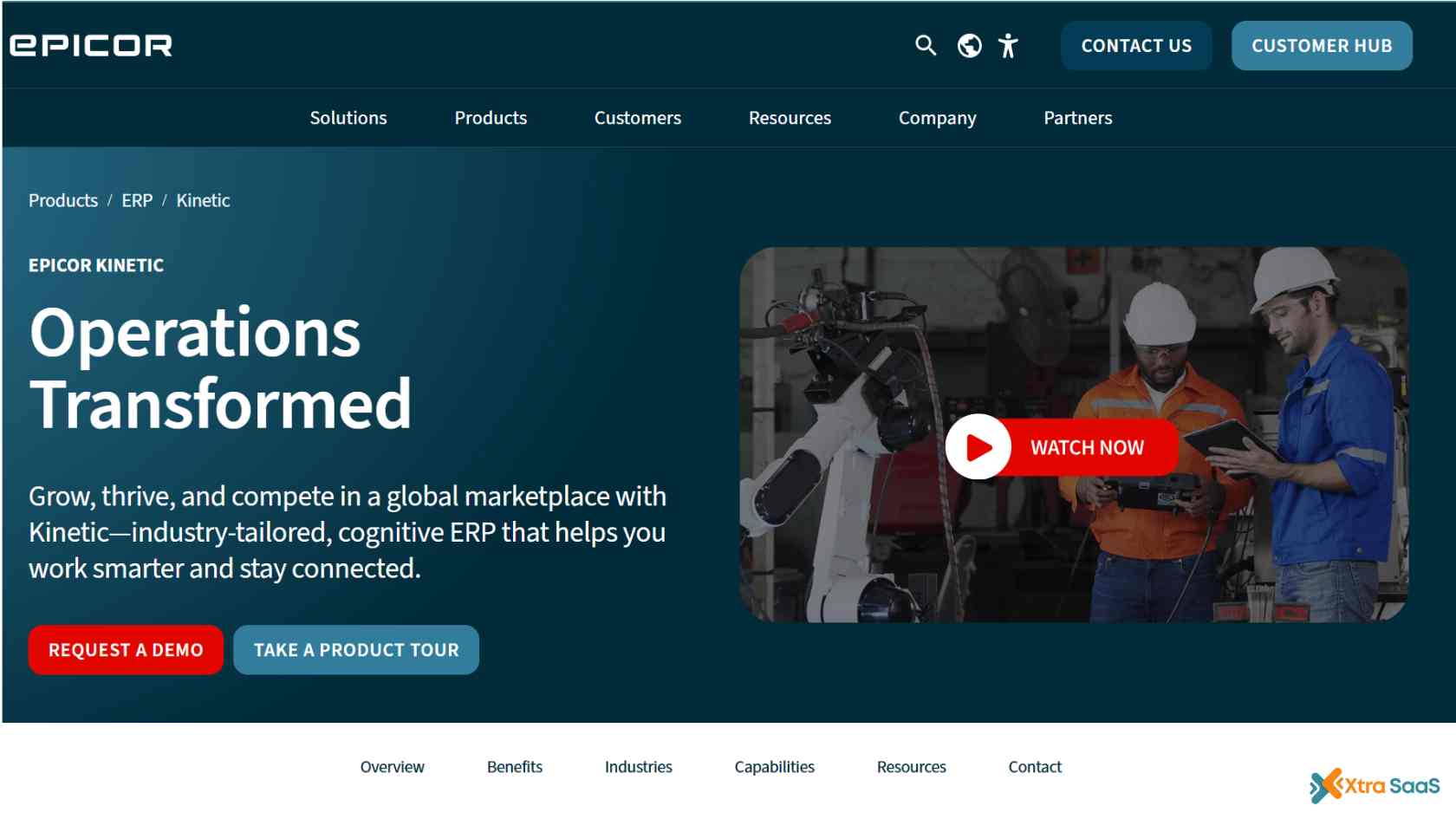
Epicor Kinetic is built for manufacturers, especially “mid-sized companies”. It’s strong on shop floor control & modern in design. “Businesses can choose cloud or on-site deployment.”
Pros:
- Tailored for “manufacturers”
- Modern & easy interface
- Flexible _deployment
Cons:
- Too advanced for “small firms”
- Not strong enough for “global giants”
9. Workday (with Salesforce)
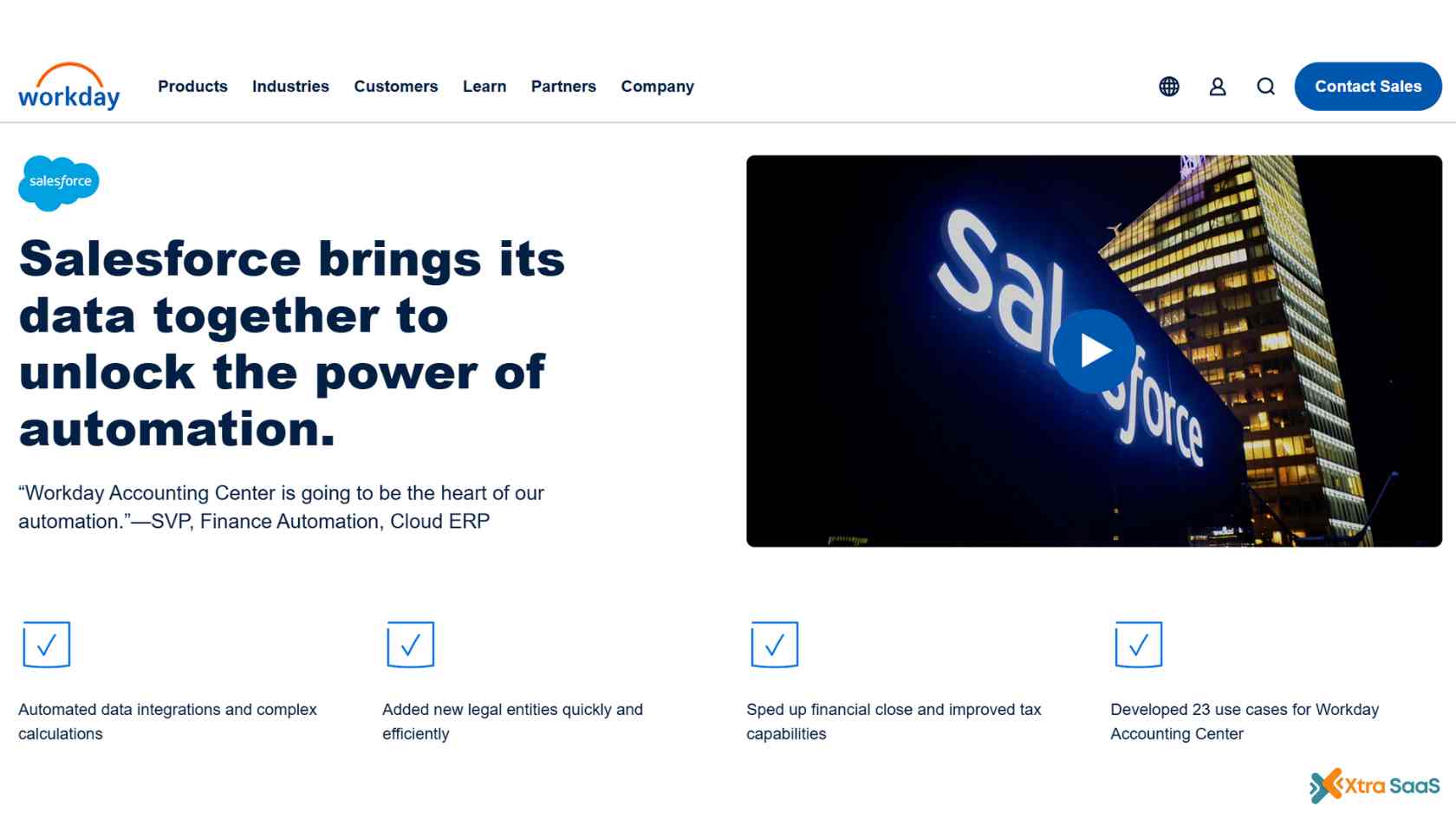
Workday combined with Salesforce is perfect for “businesses” that want a mix of HR, finance & “customer management”. It’s forward-thinking and great for “companies” focusing on people and customers.
Pros:
- Combines HR, finance, & CRM
- Innovative & future-ready
- Works well for people-driven _businesses
Cons:
- Costly to run two _systems
- More _complex to manage
10. Deltek Costpoint
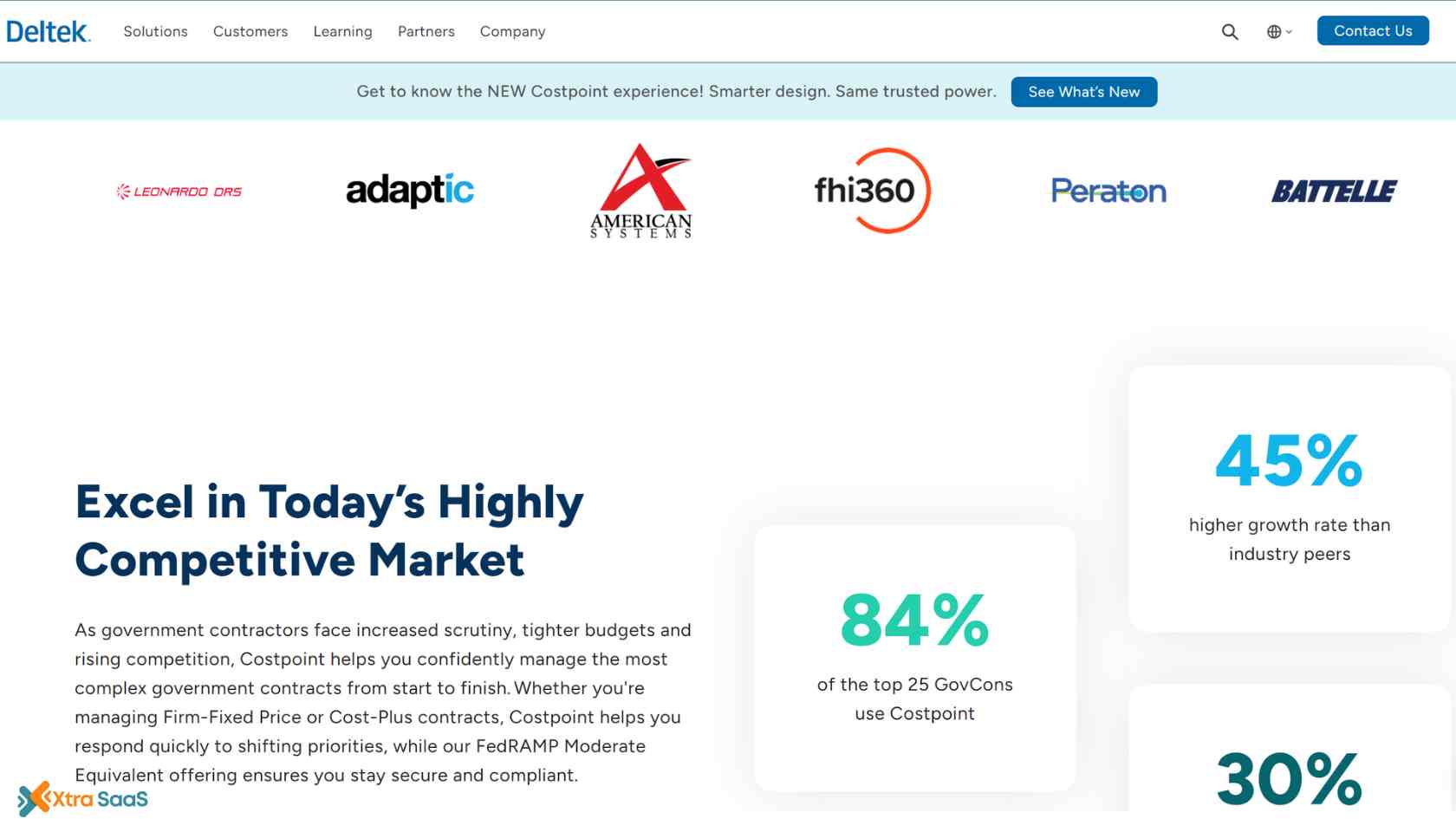
Deltek Costpoint is a specialized ERP made for “government contractors”. It’s known for its strictness.
Pros:
- Perfect for “government work”
- Strong compliance & reporting
- Built for “complex projects”
Cons:
- Too specialized for “most businesses”
- Not useful outside “government sectors”
How to Select the Best ERP for Your Company
Here’s a fast method to find the ideal ERP for your company:
- Small businesses and startups: “Zoho” or “Odoo” (easy & reasonably priced).
- Businesses with rapid growth: “NetSuite” or “Acumatica” (cloud-first, scalable).
- Manufacturers: Infor CloudSuite or Epicor Kinetic (industry knowledge).
- Asset-heavy industries: IFS (strong field service and asset tools).
- International businesses: “Oracle Fusion Cloud ERP” or “SAP S/4HANA (enterprise-grade power)”.
When not sure, think about whether this system works for how we work now and how we want to work in the years to come.
ERP Trends for the Future (2025 & Beyond)
ERP is evolving quickly. “The following trends are _worth keeping an eye on”:
- AI is used everywhere, from creating reports to suggesting courses of action.
- Industry clouds are pre-made templates tailored to your industry.
- ERP mix-and-match: Instead of investing in a single, massive system, businesses are combining different modules.
- Community-driven growth: ERP’s future is being shaped by partner networks and user groups.
Also Read: Employer of Record Solutions for Fast-Growing Markets on Every Continent
Final Thoughts
Choosing an ERP is about finding a growth partner, not just about features. In a market that is changing quickly, the correct ERP enables you to grow, adjust, and maintain your competitiveness.
Don’t _stress about locating the “perfect” ERP system if you’re exploring the top “ERP systems” to consider in 2025. Instead, concentrate on _determining which one best suits your objectives, industry & business model.
Pro tip: Don’t just read about ERPs; try them. Speak with other users, request demos, & contrast options side by side. You’ll have a system that saves time, lessens headaches & promotes your “long-term development sooner” rather than later if you take action.

